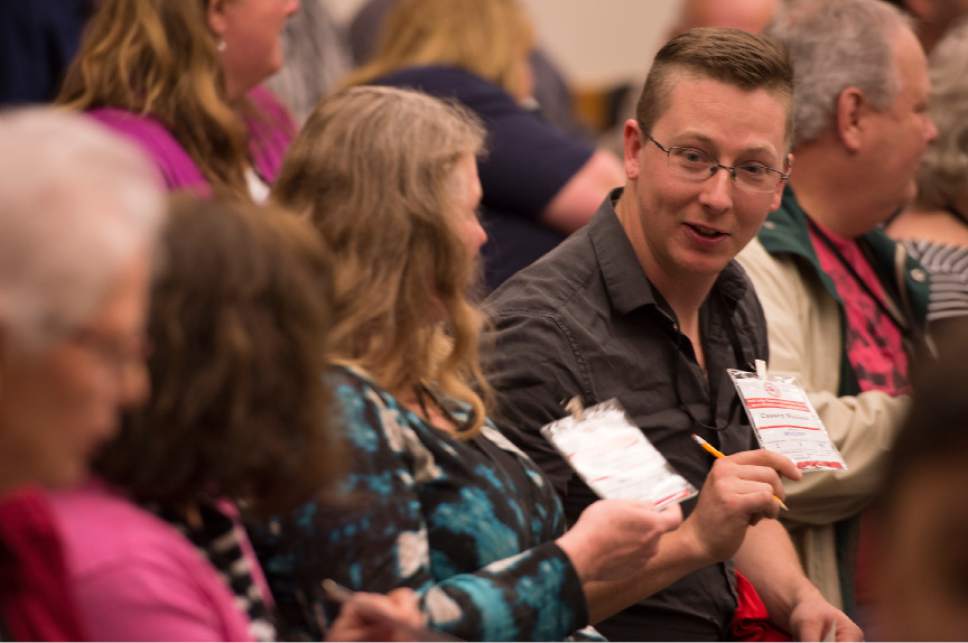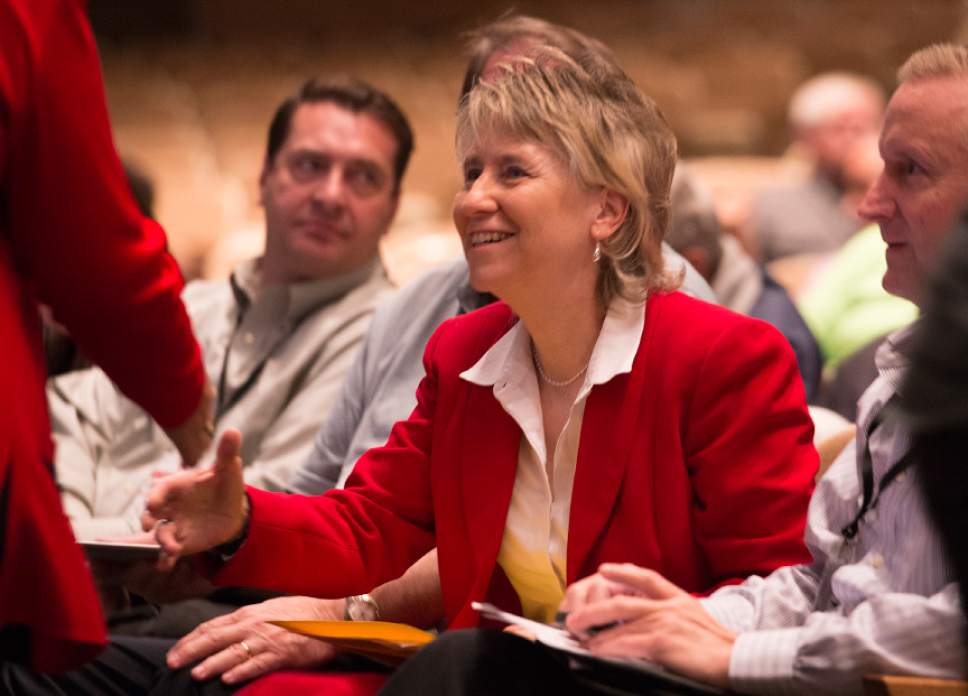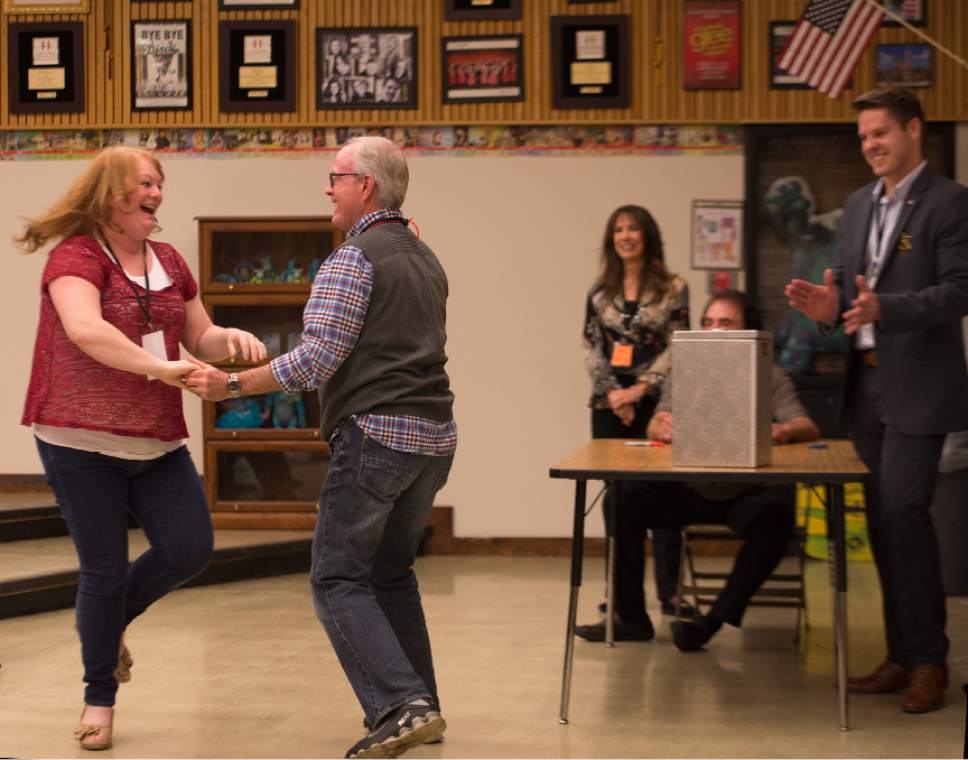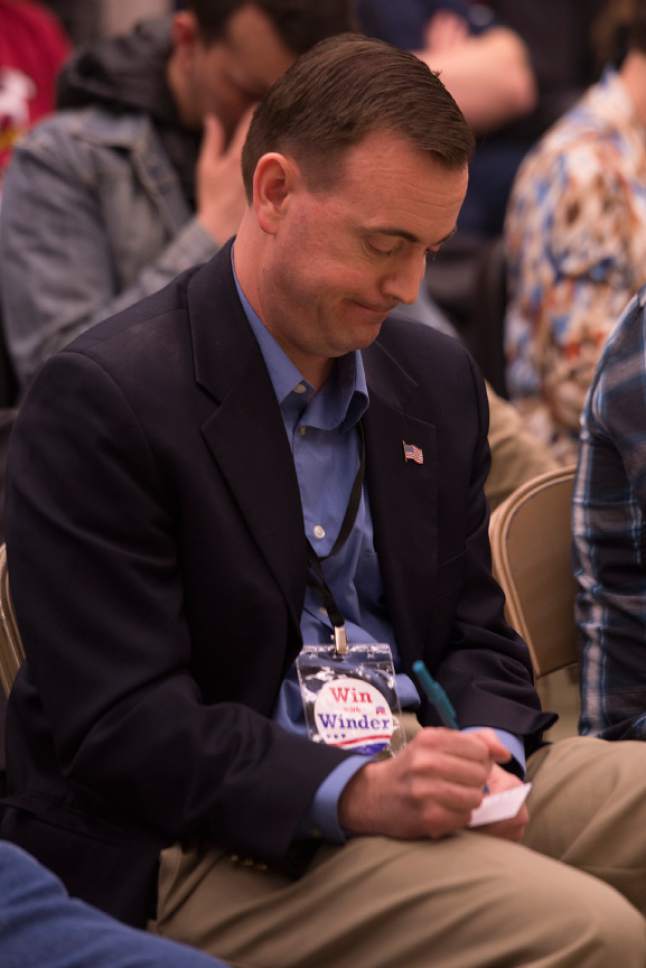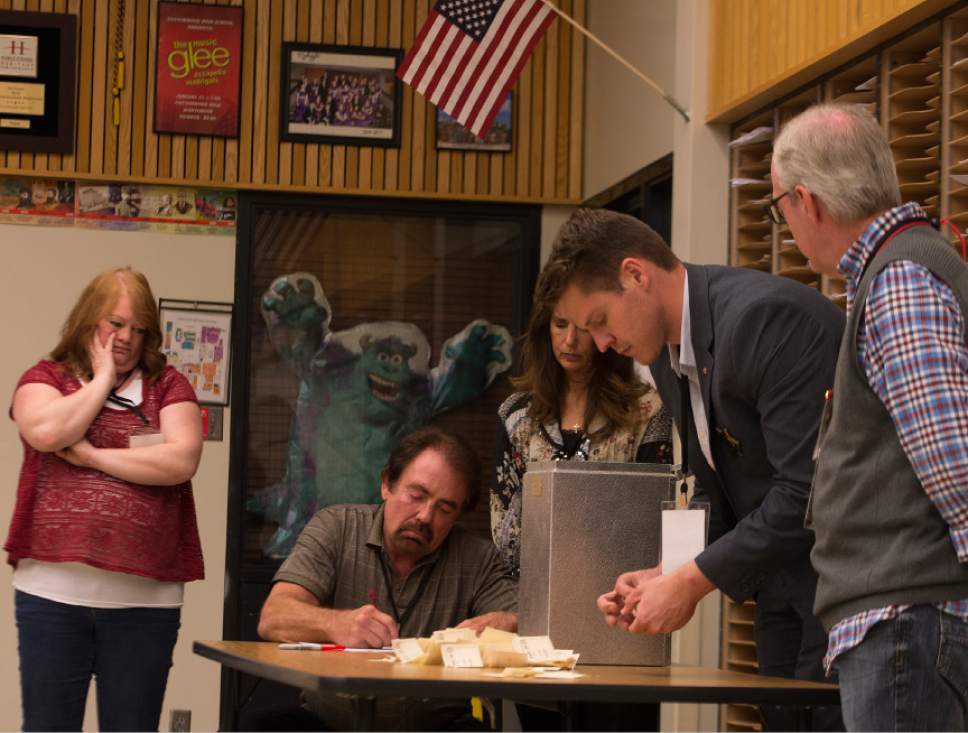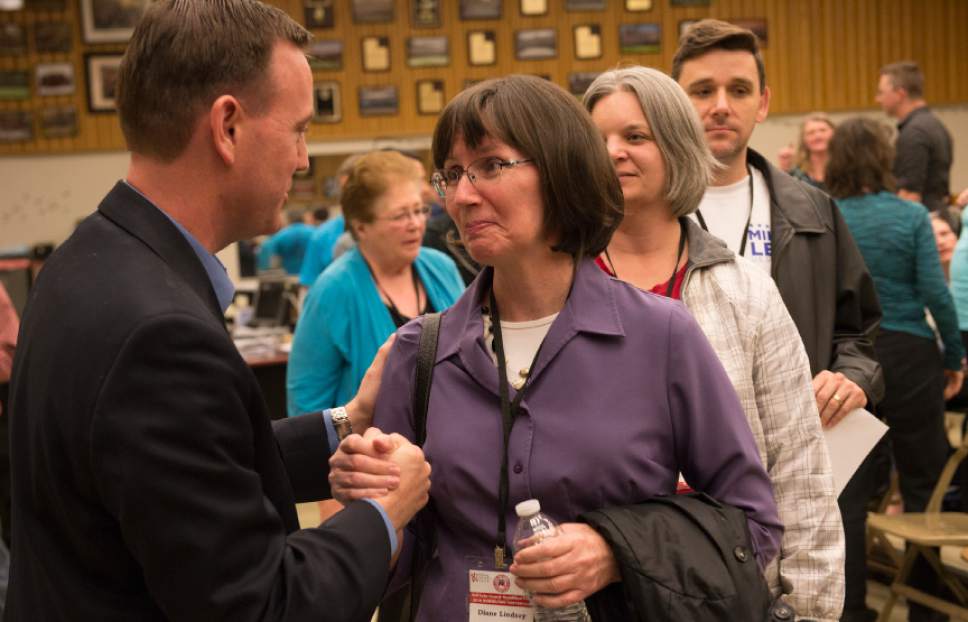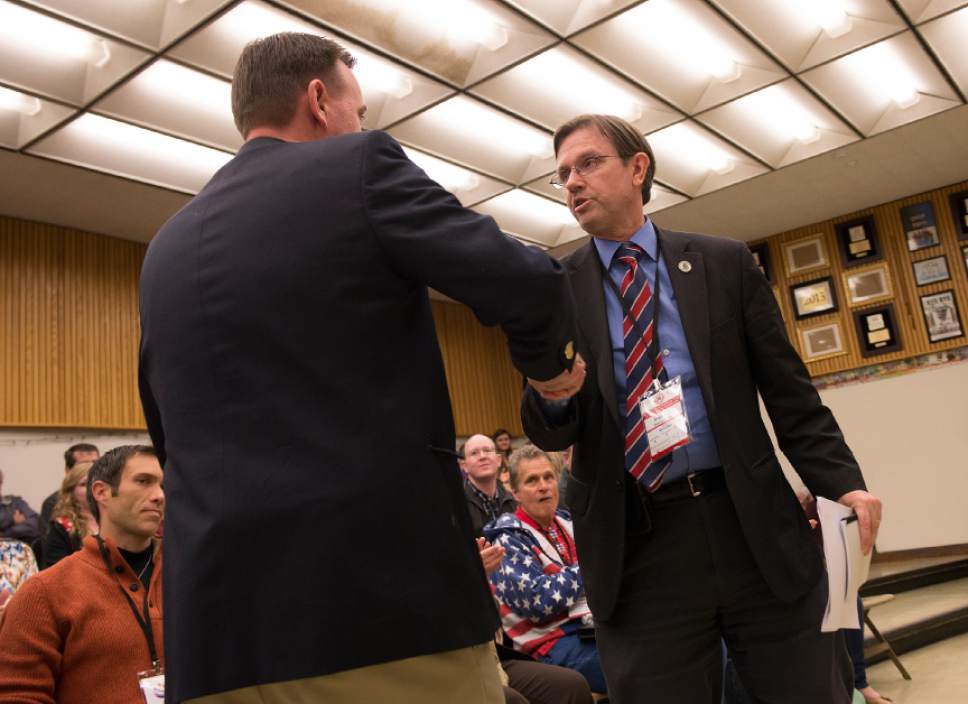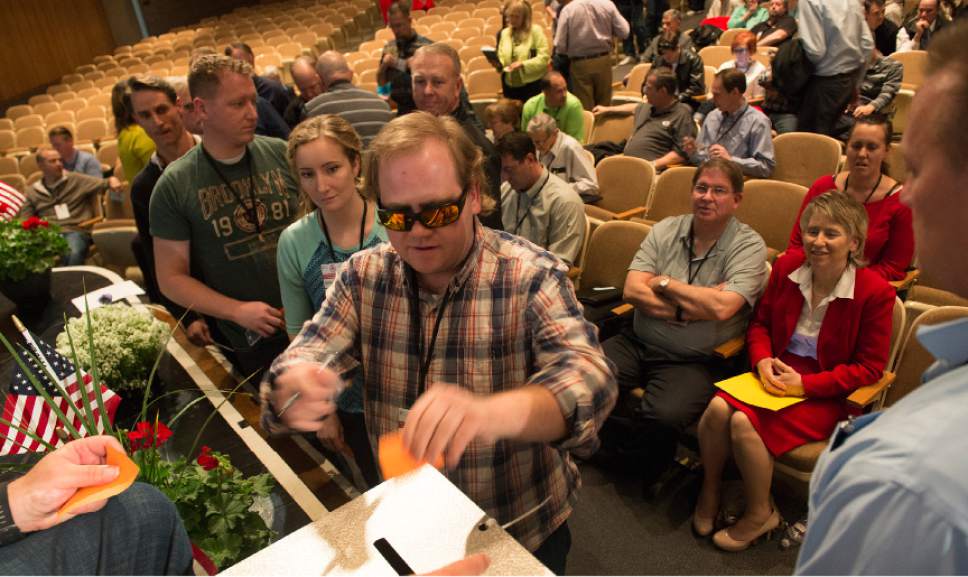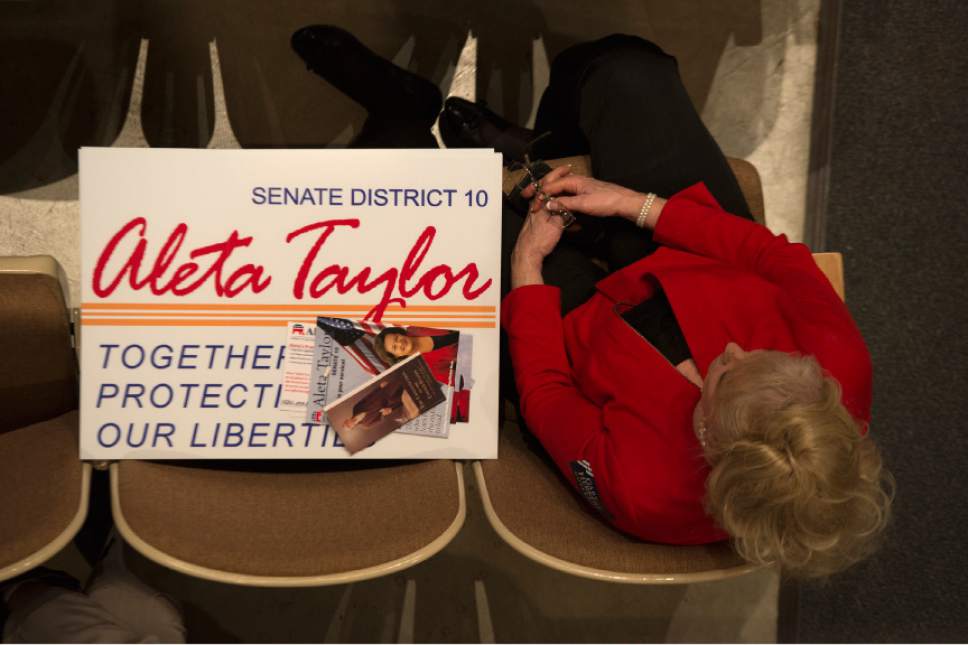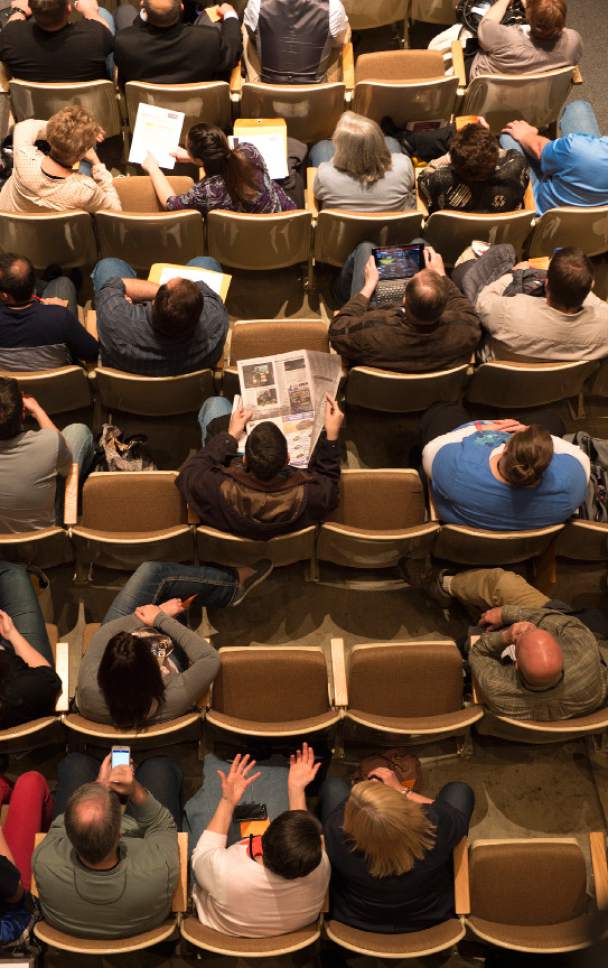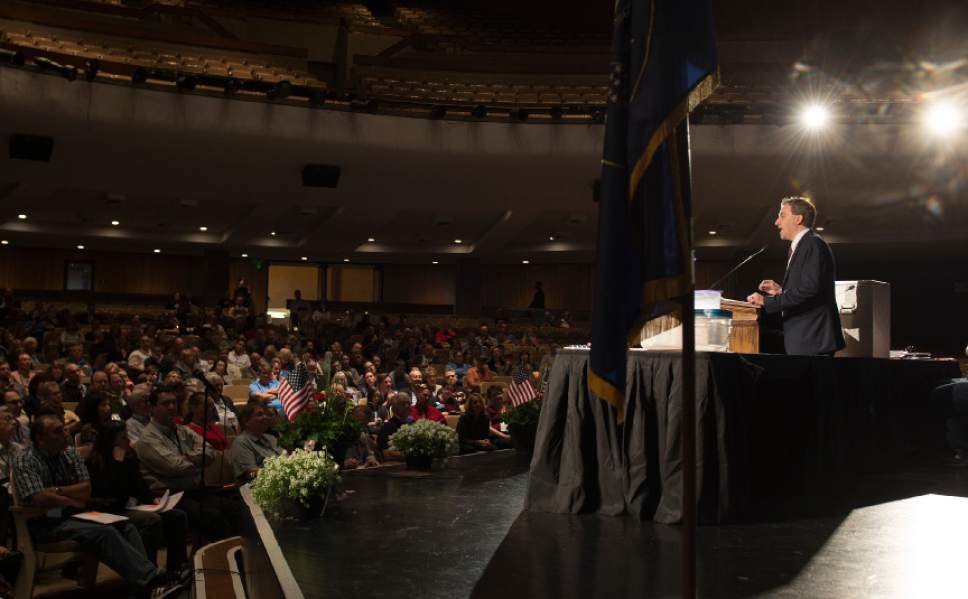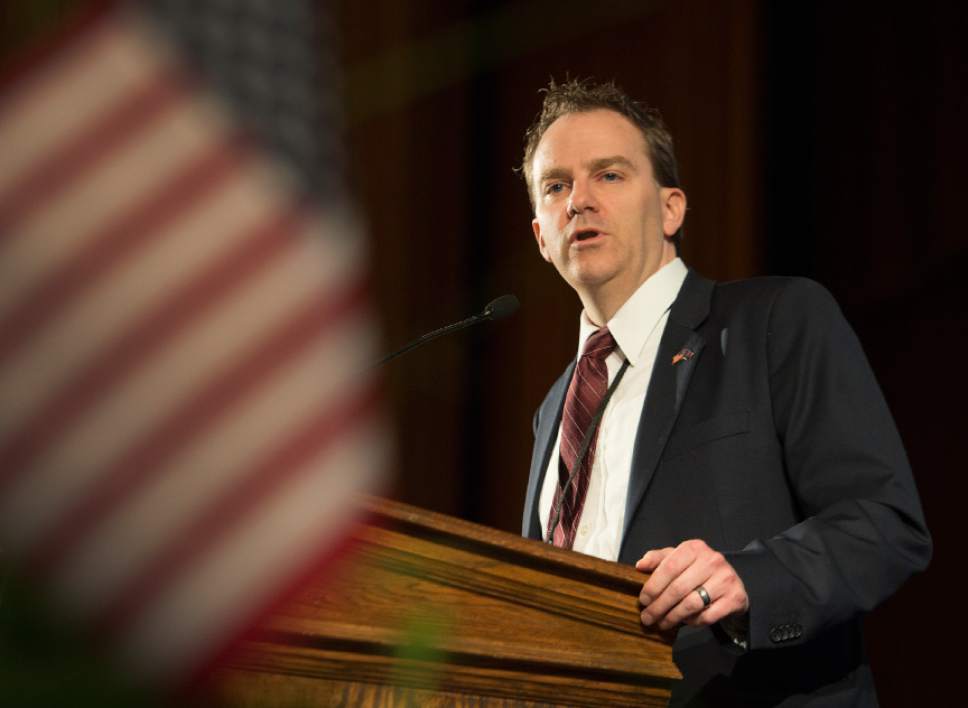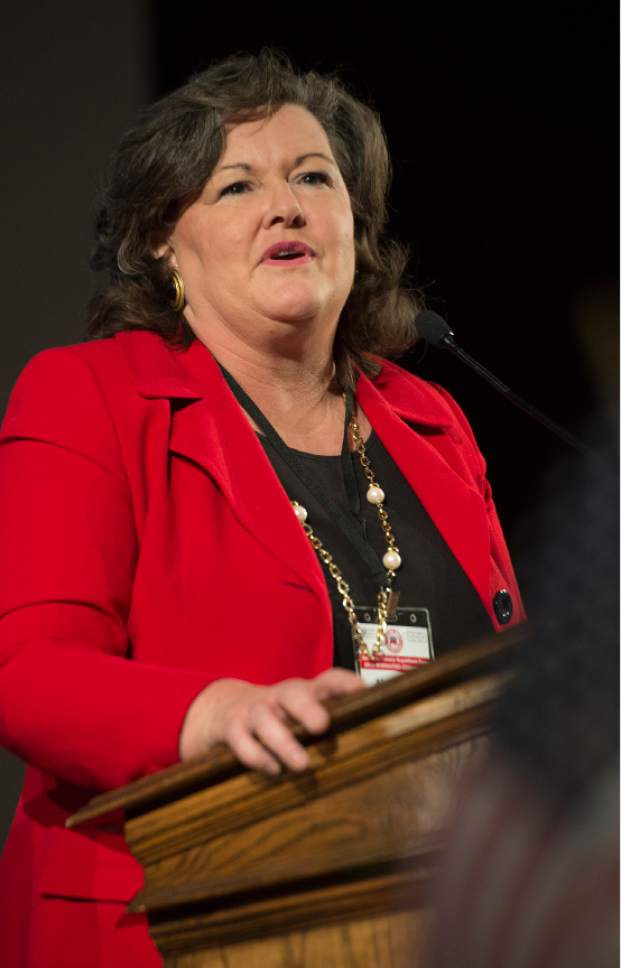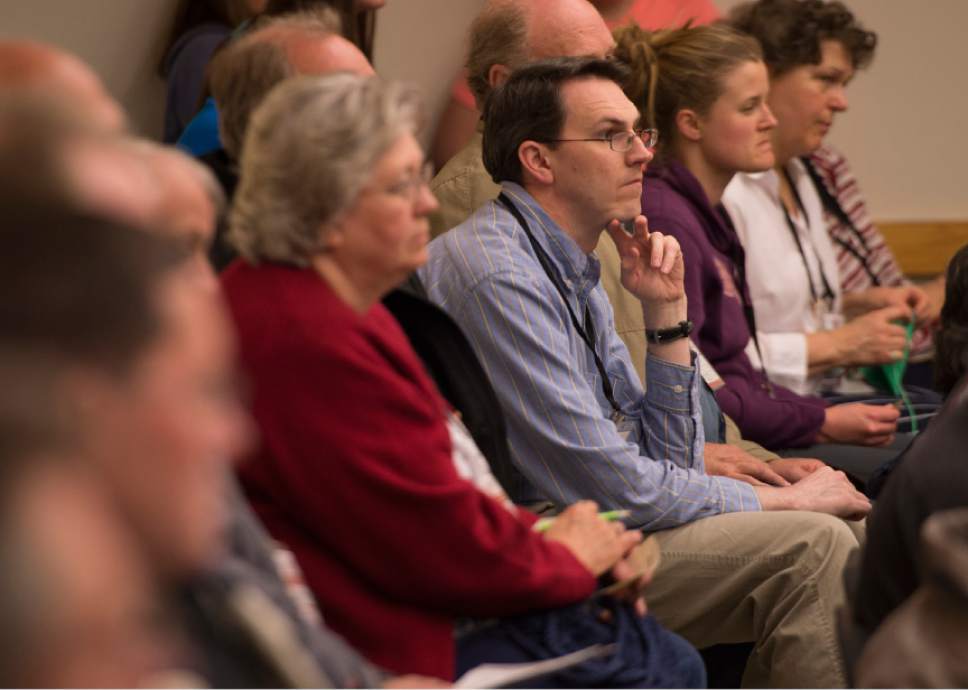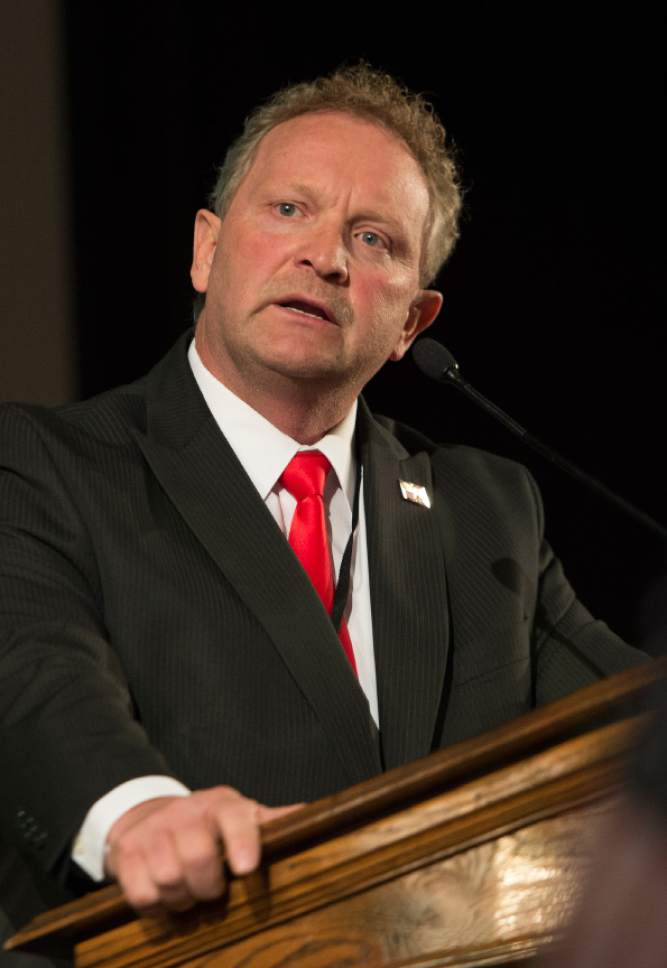This is an archived article that was published on sltrib.com in 2016, and information in the article may be outdated. It is provided only for personal research purposes and may not be reprinted.
Murray • Eight incumbent legislators faced challenges Saturday at the Salt Lake County Republican convention. Six survived.
Rep. Fred Cox, R-West Valley City, was defeated by a 62-38 percent margin by former West Valley City Mayor Mike Winder. Because he received more than 60 percent of delegate votes, Winder now proceeds directly to the general election.
Incumbent Rep. Earl Tanner, R-West Jordan, was defeated by an 85-15 percent margin by Adam Gardiner, a former aide to Rep. Rob Bishop, R-Utah, and an adviser to Salt Lake County Council member Aimee Winder.
Meanwhile, SB54 — the new law that allows candidates to qualify for the ballot either by collecting signatures or by winning at the convention — saved current Rep. Rich Cunningham, R-South Jordan, in his challenge to incumbent Sen. Lincoln Fillmore.
Fillmore won exactly 60 percent of the delegate vote, making him the official party nominee. But Cunningham still qualified for the ballot anyway because he collected the 2,000 necessary signatures.
At the convention at Cottonwood High School, five other incumbents won by more than 60 percent majorities, and will advance to the general election.
They are: Sen. Wayne Harper, R-Taylorsville, and Reps. Dan McCay, R-Riverton; Bruce Cutler, R-Murray; Ken Ivory, R-West Jordan; and John Knotwell, R-Herriman.
Two other Republican candidates also won 60 percent of the vote in races either for open seats or against Democratic incumbents.
They are Joseph Breault (who is challenging Rep. Lynn Hemingway, D-Millcreek), and Susan Pulsipher (who is running to replace Cunningham, who chose to run for the Senate).
Republicans will have primaries in two other legislative races.
In House District 22, Jamie White won 55 percent of the delegate vote and Apollo Pazell had 45 percent, so they will square off in a June primary to determine who will face incumbent Rep. Susan Duckworth, D-Magna.
In House District 34, Macade Jensen won 56 percent to 44 percent for Jack Castellanos. They are competing to replace retiring Rep. Johnny Anderson, R-Taylorsville.
In one of the more closely watched races, Winder told delegates that West Valley City needs better representation and a stronger candidate to keep their swing seat out of Democratic hands.
Cox had lost to a Democrat four years ago, but had regained his seat in 2014. Compared to others, he had a relatively low legislative batting average for passing bills.
"I'm concerned about our area," Winder told delegates. "We are the second largest city in the state. Other communities get what they want far more often."
Cox recounted how many bills he has passed in his two non-consecutive terms, said he has often accepted sponsoring "bills that no one else would touch" on important topics — and said he did not run easy resolutions to try to pad his statistics.
Winder ran into controversy when he was mayor for writing positive newspaper articles about the city under a pseudonym. When asked if that could create a problem in the general election, he said, "Our residents know I care passionately about this area. They know I learn from mistakes, and will continue to fight for this area."
Similar to Winder, Gardiner had called for better representation for West Jordan against incumbent Tanner.
"For too long the west side of the Salt Lake Valley has been neglected by our state Legislature. I will fight for West Jordan and west-side projects to bring economic vitality and growth to the west side," Gardiner said on his website.
One of the hottest races has been the Senate District 10 contest between Fillmore, Cunningham and long-time political activist Aleta Taylor (who was eliminated in a first round of balloting).
Cunningham was attacked for gathering signatures to appear on the primary ballot no matter what happened at the convention, an option allowed by SB54 — a new law he had opposed. It is unpopular with delegates elected in the caucus-convention system.
Cunningham told delegates the other candidates had attempted to gather signatures, too, but only he was successful. He said he decided to take full advantage of the new law, and found collecting signatures had helped bring more people into the political process.
Fillmore had one unusual campaign tactic on Saturday: golf carts covered with his signs giving delegates rides from distant parking areas.
Meanwhile, the convention slapped embattled County Recorder Gary Ott. Press reports have questioned his mental stability and ability to run the office after he was found by police wandering incoherent on a remote Tooele County road one night in January. The county has launched a performance audit of his office.
Ott didn't show up for a scheduled speech at the convention, instead sending a proxy, chief deputy Julie Dole. But County Republican Chairwoman Suzanne Mulet ruled elected officials had to speak for themselves. Delegates voted to uphold that.
During debate on that matter, one delegate urged allowing the proxy to speak because "there's no reason we should be necessarily pressured by the media bias against the recorder to put some kind of special rule" to prevent that.
"Our platform demands accountability of our officials," another delegate argued. "This is the only accountability that by law our party can have in the particular matter."
The convention also listened to hours of speeches from a long parade of officeholders, who often threw some red meat for them to devour with cheers.
Rep. Chris Stewart, R-Utah, for example, said he and fellow Republicans in Congress "are fighting a president who pretends he is a king." He added, "We are fighting a media that lies to us, and pretends we are so stupid we don't know the difference."
About 2,200 delegates filled Cottonwood High School and its parking lots, forcing some to walk from far away. House Speaker Greg Hughes missed giving the opening prayer. He told delegates later he had to walk from a mile away. "I should have taken Uber."


